The Origin of Psychological Trauma
My grandma used to tell me that life back in the day was tough. Most couples used to have as many children as possible so they could help around. The young members of the family were seen more or less as a financial asset since extra working hands for the fields was the most valuable commodity. Thus, families made sure to have at least half dozen children each. Due to the harsh conditions and lack of medication each family also lost children. To my surprise, my grandma told me that parents weren't affected as much since it was considered rather normal for the day.
It was this notion that got me into thinking about the nature of psychological trauma. Parents in most western countries would feel devastated if they lost a child. The reason being is rather obvious. Unlike the past, modern medicine has enabled us to have longer lifespans. Child mortality has become unacceptable. The experience becomes traumatic because we compare the negative event of the loss of a child that happens only to us and not to others.
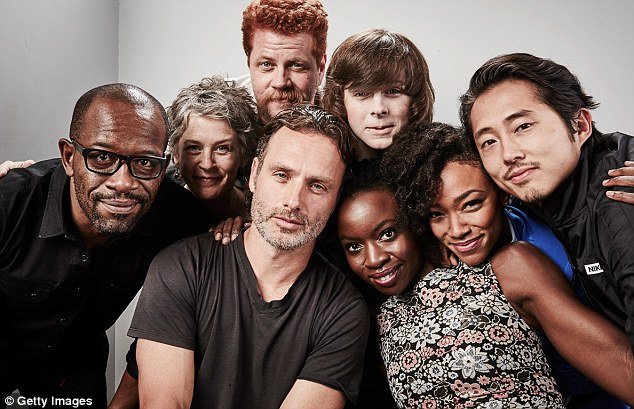
I am a fan of the show "The Walking Dead". I don't fancy much the zombie theme but rather the anthropological aspects of a community trying to survive. In the show, every surviving individual has lost many people close to them. Almost always, they got to kill the zombie versions of their friends. Although people seemed to be quite traumatized in the beginning in the first season, this changed slowly as more and more people were having a similar traumatic experience. Fast forward a few seasons later on, and they all got desensitized to killing zombies or even losing someone close to them. Life and death were not seeing so far apart since death was not only expected but also welcomed.
We can observe similar behavior in elderly homes. Old people don't seem to care that much due to the understanding of their situation. Their children don't mind much either. They expect that they will die since slowly they have been losing all their friends. They know the end is inevitable. In contrast, we don't see this behavior in clinics with children that have leukemia. Their parents are torn apart even if the children don't quite grasp their own death. Not many children get to die so young from such a horrible disease.
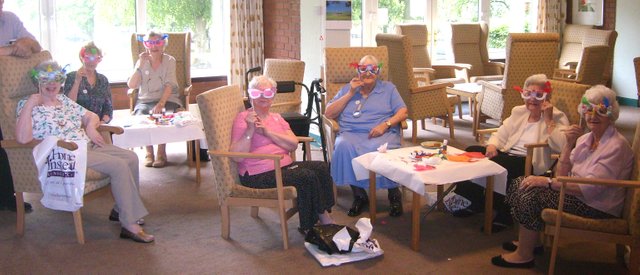 source
source
Rape victims also experience this form of trauma. They realize the gravity of the situation only when they grow old and understand what happened to them. They compare their experience with how culture perceives normal sexual behavior and they are torn apart. It is hypothesized that if children were not introduced to the cultural aspect of rape and normal sexual behavior they wouldn't feel traumatized. Even those who end up abusing children sexually, most often, they are repeating the same experience that happened to them. It was the first sexual experience they had so in their world it registered as normative.
Soldiers having Post Traumatic Stress Disorder suffer from something similar. War introduces someone to horrific imagery and actions that cannot be processed accordingly when coming back to a healthy society. Almost everything looks like a dream. This is the main reason most veterans find it so hard to adjust while people who remain in the field seem to accept the reality of the situation. The traumatic experience is not so much the event itself but rather the transition and comparison one makes to a healthy environment.
We often wonder why spoiled children that live in luxurious neighborhoods have "silly" traumas. To them they are certainly not. A child might be comparing themselves with multimillionaire children. If his parents make only 6 figures then the child will feel inferior. The measure by which we compare makes all the difference. Similarly, if we take a western child to a poor African neighborhood they will be devastated even if they have all the necessities to stay alive. And let us not forget that from their perspective, we are the spoiled ones.

Psychological trauma is nothing more than how we measure our life experiences to those around us. If something bad happens to us and not to others then we are devastated. In time, if something bad happens to everyone then it passes unnoticeable. Self-help groups work so well because one's environment becomes normalized. No matter what kind of bad experience one has, someone is there to share a similar story.
We are social animals. Comparing ourselves to others is inevitable. The majority of psychological disorders do stem from a lack of connection. We perceive our world being much different from those around us. Technology plays a major role to this since everyone has become a unique individual, able to digest tons of different material and thus create a completely new narrative.
Unfortunately there is no solution to this. The middle path doesn't cut it. Medication and therapy don't help either and this the reason psychological disorders seem to spread like a growing epidemic. We could sacrifice our individuality by being groupies but then we will become sheeple. We could choose to be groupies to relate to everyone but our minds will understand the hypocrisy and hit us back. We can't really fool ourselves. No doubt, hive minds are healthier even if they appear nuttier to the rest of us.

There is a reason loners suffer from depression and anxiety. There is a reason almost all of us are becoming loners as well. We are slowing being cut off from the world because we abundant information crafts our own unique reality. Every experience for us can be traumatic in comparison to others. Nobody can understand us because we are way too much into our own selves. When we occasionally measure ourselves to others, we panic.
As long as we are bound to our biological bodies and technology keeps increasing, psychological traumas will only become more prevalent.

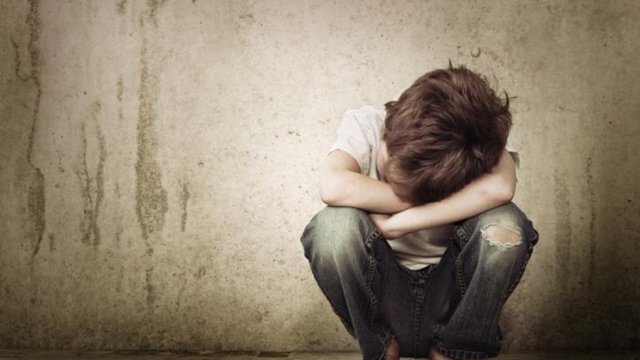
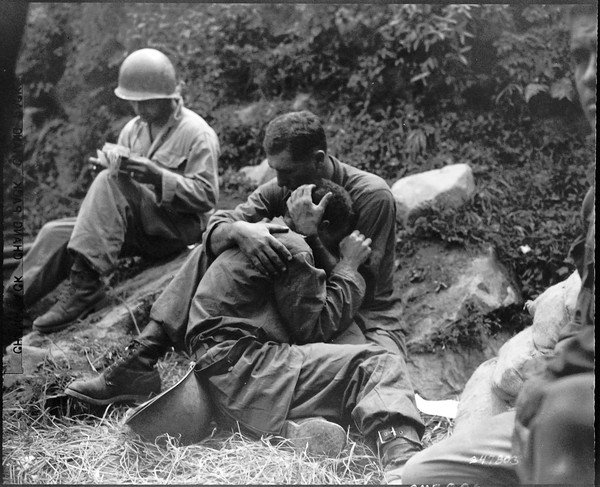
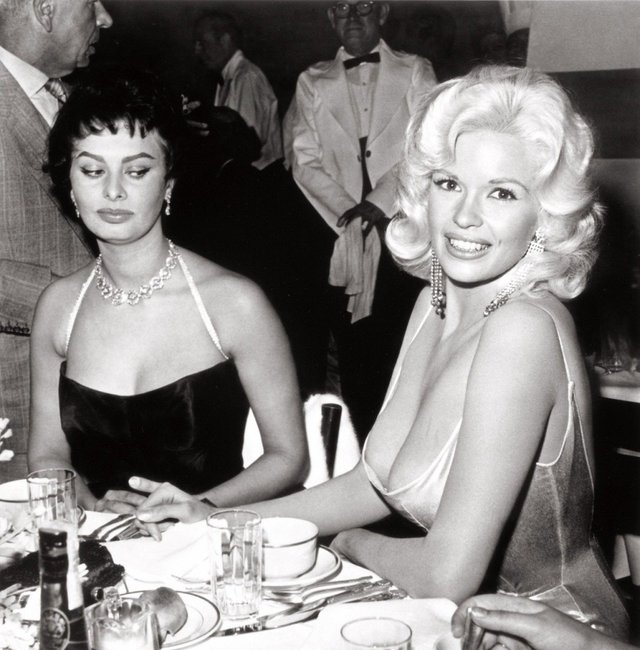
I had the pleasure of knowing my great grandmother, who was born in 1892 and died in 1991, just 4 days after her only son died and 6 months before her 100th birthday. One thing I remember about her was how much joy she found in the simple things. Life in general was simpler back then, and the stories she told were always about family and community, rare commodities these days.
Someone from her era being dropped in to todays world would likely be traumatized by the way we live now, just generally. Not having been desensitized with the incremental changes over the passage of time.
this is so true.
Mi bisabuela nació en el 1900 y murió con 94 en 1994 y mi abuela ahora tiene 90 años y porque no ve bien, pero son lo mas grande, las historias de la guerra! yo firmaba ya para estar como mi abuela que tiene tantas ganas de vivir, que no me imagino que por su edad un día por resfriado como le paso a su madre se vaya!
te mando saludos, soy nuevo por aquí.
I resonate with your comment @aboutyourbiz & thought I'd say that I've decided to follow you just on this alone! Looking forward to reading more from thinkers such as you.
Your comment caught my attention, and since your rep was 53 and not 25, (you know, the whole f4f nonsense) I figured I'd check you out. I'm glad I did cuz I think I may be interested in some things you have to say too!
Thank you kindly. Yes I've certainly seen a lot of the Follow For Follow mentality and have steered quite clear of that approach.
I am of the opinion that my content alone should attract followers and if that means I am slow to obtain them but I end up with a more content-driven follower base then I'm all the richer for it.
In fact the very fact that I am discerning was my motivation for announcing myself to you in the first place as following is not something that I tend to do trivially.
Again, thank you for your considered input and I look forward to looking up to your reading expectations 👍
I don't know if this is the kind of thing you would be interested in, but I joined this challenge today https://steemit.com/challenge/@merej99/putting-my-money-where-my-mouth-is-a-community-challenge#@aboutyourbiz/re-aboutyourbiz-re-merej99-putting-my-money-where-my-mouth-is-a-community-challenge-20170709t024245280z
I see you're new like me and something about this intrigued me so i joined. It's not too late if it interested you too. I don't even know why I'm telling you this, oh well.
Another top post @kyriacos. What you're talking about here is a calibration of perspective. For many years now based on my observations of those I see in the real world, I've remarked to myself that I am glad that I'm not young at this time.
That sounds a bit funny I'm sure to the casual reader but as I observe young school children walking in packs, all heads down on their phones, breaking the trance only to remark to a neighbouring student about something on their display, I can't help but see fragility.
When one's entire social ecosystem and along with it one's entire calibrated view of what constitutes acceptable, good, desirable, undesirable, shocking or normal comes from an Internet connection & in many cases online friends, then any destruction in that mechanism would be perceived as a traumatic event.
Consider the basic example of your mobile phone battery going flat whilst everyone around you continues to live online.
Continuing with this student example, and without the appropriate life experience, this would be a world ending event.
Thank you for the insight and the thought provoking material as usual
@nolnocluap
well said
A lot of people who survived the Great Depression were traumatized, they just have different ways of showing it. My grandmother never throws anything away that she perceives as useful. She justifies saving gum wrappers to use as scrap paper the way I glorify my kitchen drawer of extra fast food condiments (I grew up without a lot of money). We excuse it as having a "waste not, want not" attitude, but it's really grounded in trauma. The reason they didn't "go on about it" was because of the stigma associated with mental health.
My grandfather served in World War II, Korea, and Vietnam, and he never once went to therapy for PTSD. That doesn't mean he wasn't affected by it--I know from his candid veteran-to-veteran talks with me that he was. For most traumatized people in earlier generations, the mental health system was worse than what ailed them, so they kept their struggles to themselves. No one wanted to be institutionalized.
Some of what you discuss here is reminiscent of cognitive processing therapy. Are you familiar with that course of treatment for trauma survivors?
Excellent point about the mental stigma and not wanting to be institutionalized. People were also tougher back then, meaning they dealt with things in a way most didn't see there was a problem, and today people cry the same think about because they don't have to deal with much. Teacup generation. Need safe spaces.
I am not aware actually. I consider modern psychotherapy pretty much useless. Indeed, people in the past used to learn how to deal with their own problems. Today most people got spoiled and are getting dependent on some kind of "Free ride". they don't want to go through the processes of "toughening" themselves.
Humans are "difference machines" -- absolutes don't motivate or impact us, we only notice differences. So our entire lives are framed from the perspective of reacting to things that are different -- the more different they are, the more we either thrill or chill at the sensation of that difference. That's why the horror movie industry exists, why the thrill ride industry exists, why entertainment has to keep getting more violent and realistic in order to keep us interested, and why drug use tends to accelerate. Our neurons adapt to whatever they are exposed to.
I think that humans are designed to live in small groups. As groups get too large, anonymity starts to emerge and humans can't handle anonymity well. We need privacy, where no one is looking at our actions, but can't handle anonymity, which is where we can take actions without having to be responsible for the consequences.
Humanity is getting ready for its next cycle. The old order of industrialization is on its last legs --- industrialized medicine, education, government, economy -- these are all under strain and will collapse.
What will emerge with the help of 3D printers, decentralized crypto money, and disconnected power generation capabilities will be the new world -- what I call the "Techno-Agrarian world." Still connected through the internet and probably connected through a decentralized peer to peer internet system, but no longer trying to get "jobs" -- instead, you will make your own stuff and grow your own food. This world will reward small groups, and I think we will see that psychologically this will be much more healthy for us.
This is really well put. You should make a post about it.
Great article. Reminded me of my great grandma. She say things like "I dont know if we didn't have since enugh to be traumatized, or just didn't have the time to; But we sure didnt carry on like people do now a days." Thanks for posting.
Great saying :)
Living in a somewhat rich African city, I see these traumas everyday. Mainly in the way people behave. The population is constantly comparing their daily lives with those seen on TV and Social Media, although we can relate, in a way, there are many aspects missing like complete freedom, security and simply richness. This manifests in the way we behave, the way we think... many are lost. The way we deal with it is pretty horrific. We constantly criticize and judge each other for doing things we are doing too or that we wish we did, to belong. Belong to something we can't quite grasp. Many insecurities and hypocrisy are created from this psychological trauma that you speak of eloquently.
I am glad you are bringing your own experience into the argument. Thank you for sharing this.
At the end, it's all about our perception - isn't it ? The way we perceive, we think. And the way we think, we act. It's all about the spectacles that we're wearing, the lenses through which we see the world.
To some, they are illusions but when most people start believing it, it becomes reality.
yeap, it is all about perception.
Very interesting reading! Makes me wonder how much our feelings are tied to customs and norms in the society surrounding us. Having lived in two different countries has opened my eyes to how different we can react to simular events.
Oh, they are tight up alright...
Living abroad is the one of the biggest eye openers one can go through.
I believe as traumas may seem to appear bigger or we are less fit to deal with reality, the contrary is also thru, our consciousness and ability to thrive, love and care is also bigger.
Our consciousness expands, and as we emerge into bigger realms of it, the gap between the most evolved end the most retarded grows bigger too.
Those, we see people living like 50,000 years ago surviving on their magical-mythical world yet we see enlightened people (real ones, few of them) guiding not so blindly, others with eyes open, willing to evolve and free themselves from suffering and complaining, accepting responsibility for their lives.
Have a great day you all!
You make good points about comparative psychology, it does seem like we use the way other people react to things as a barometer for how we react - including how loudly to complain or how long to linger on an injury.
Although I think its less extreme than you paint it - really extreme trauma like rape or murder shouldn't really be desensitized, it makes sense to be devastated when something horrible happens.
Small stuff though, I think social media and the internet are making it a lot more stressful for everybody.. so much easier to compare to each other.